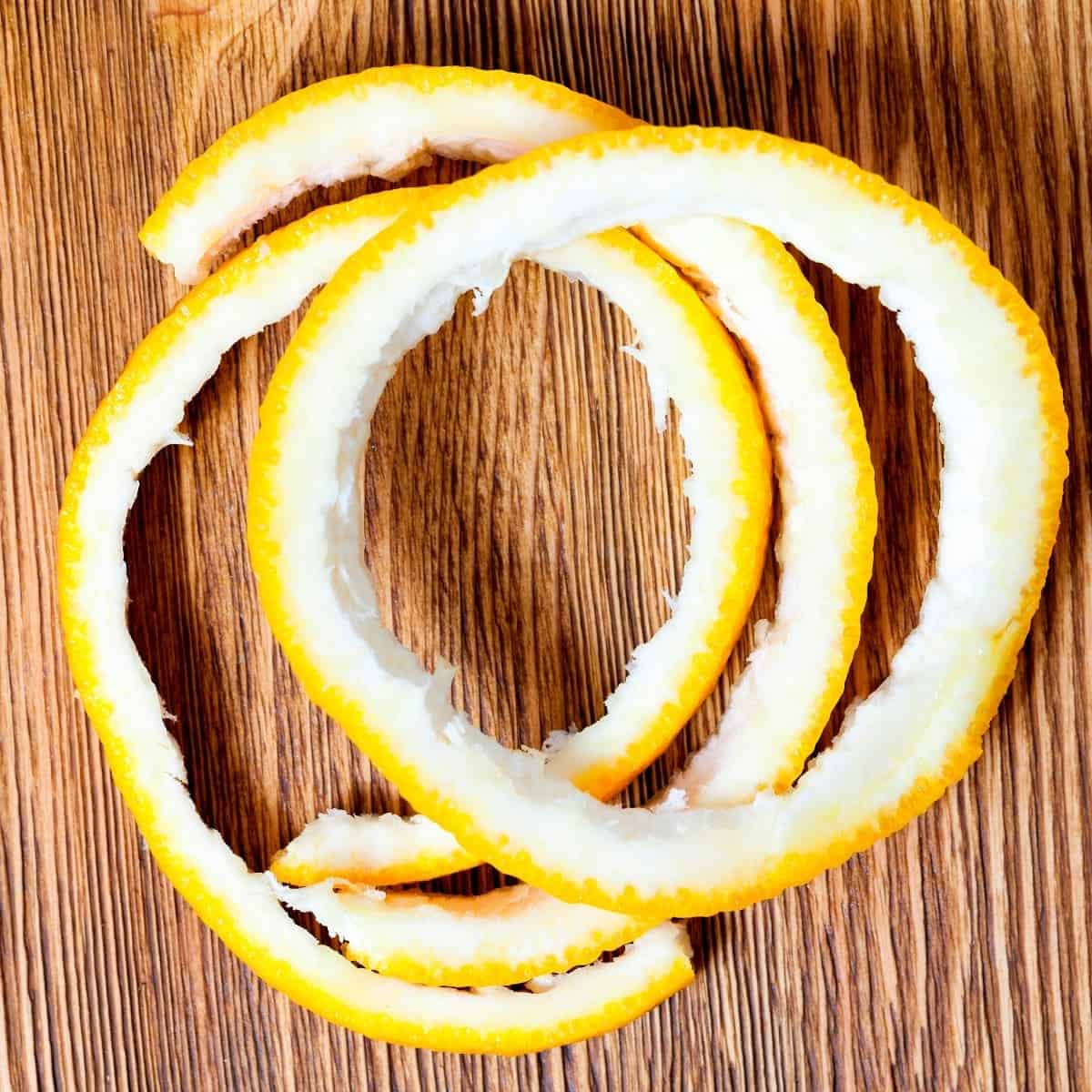
Some might think there's no need to use an orange zest substitute because they can simply omit the ingredient. However, I find that the missing zing, tanginess, brightness, and acidity the zest is responsible for can affect the overall quality of the dish, sauce, dip, marinade, baked goodie, and beverage.
Hence, I'm sharing with you the orange zest substitutes I used for years and continue using in many of my recipes as and when needed.
Jump to:
Why Is Orange Zest Important?
Some might not truly understand why it's best not to omit orange zest in their recipes unless they really have no choice. After all, the zest is just tiny pieces of the orange's exterior.
But as tiny as it might seem, the orange zest has its own kind of magic that can do wonders for your recipe, such as:
Adds Citrusy Aroma and Flavor

Whether you're preparing savory dishes, sweet flavored dishes, baked goodies, or beverages, orange zest adds citrusy flavor and aroma that can make mouths salivate.
The notes are subtle but still noticeable, so it isn't overpowering. Plus, orange zest helps enhance flavors of bland, even some flavorful, ingredients.
Balances Sweetness
Another reason orange zest is essential is that it ensures you don't prepare overly sweet desserts, dishes, and baked treats. If you omit it in your recipe or do not substitute it if you have no available orange zest, you might serve treats with an unbalanced flavor.
Delectable Garnish or Topping
Home cooks, even professional chefs, love to sprinkle orange zest on sauces, dressings, cooked food, baked treats, and beverages, not just for mere decoration. While the bright color of the zest can make everything look appetizing, the zest can also add texture.
Adds Acidity
Orange zest will definitely add acidity to your recipe. While some might think it is a bad thing, acid ingredients actually help bring out the flavor of the other ingredients they're combined with. Not only that, but they also contribute to dough rising and tenderizing ingredients like meats.
5 Best Orange Zest Substitutes for Flavor, Aroma, and Texture
Now that you have more reasons to substitute orange zest when you don't have the ingredient or just want to be more creative, here are five great options:
1. Lemon Zest

As one of the most affordable and accessible citrus fruits, lemon zest is my top choice. Not only does it have the same texture, citrus aroma, and tangy flavor as orange zest. It also helps balance out the sweetness.
Like with oranges, make sure you use fresh lemons to get the best flavor, aroma, and texture. Fresh lemons also ensure you can easily and quickly obtain lemon zest with your cheese grater or microplane.
To replace orange zest with lemon zest in your recipes, follow a 1:1 substitution ratio.
Best for just about anything.
2. Grapefruit Zest

If you happen to have grapefruit in your kitchen, then go ahead and substitute orange zest with the same amount of grapefruit zest. As a member of the citrus fruit, it has the same zing and tanginess. Grapefruit zest won't also disappoint when it comes to adding texture to the food and beverages you prepare.
While it isn't a major issue, you will need to use more effort when zesting the grapefruit's rind because the outer layer is much thicker than oranges and lemons. Thus, make sure you use a sharp grater or microplane.
Best for just about anything.
3. Clementine Zest

Clementine is a hybrid variety of orange with an aroma and flavor profile that combines Mandarin and sweet oranges. As such, it's less tangy but sweeter than the common orange (navel orange), which makes it an ideal orange zest substitute when preparing food and drinks for kids.
The fruit's rind has the same color and texture as orange, so it won't feel like the orange zest is missing when used as garnish or topping.
To use, add the same amount of clementine zest as what's indicated in your recipe for orange zest.
Best for just about anything.
4. Lime Zest
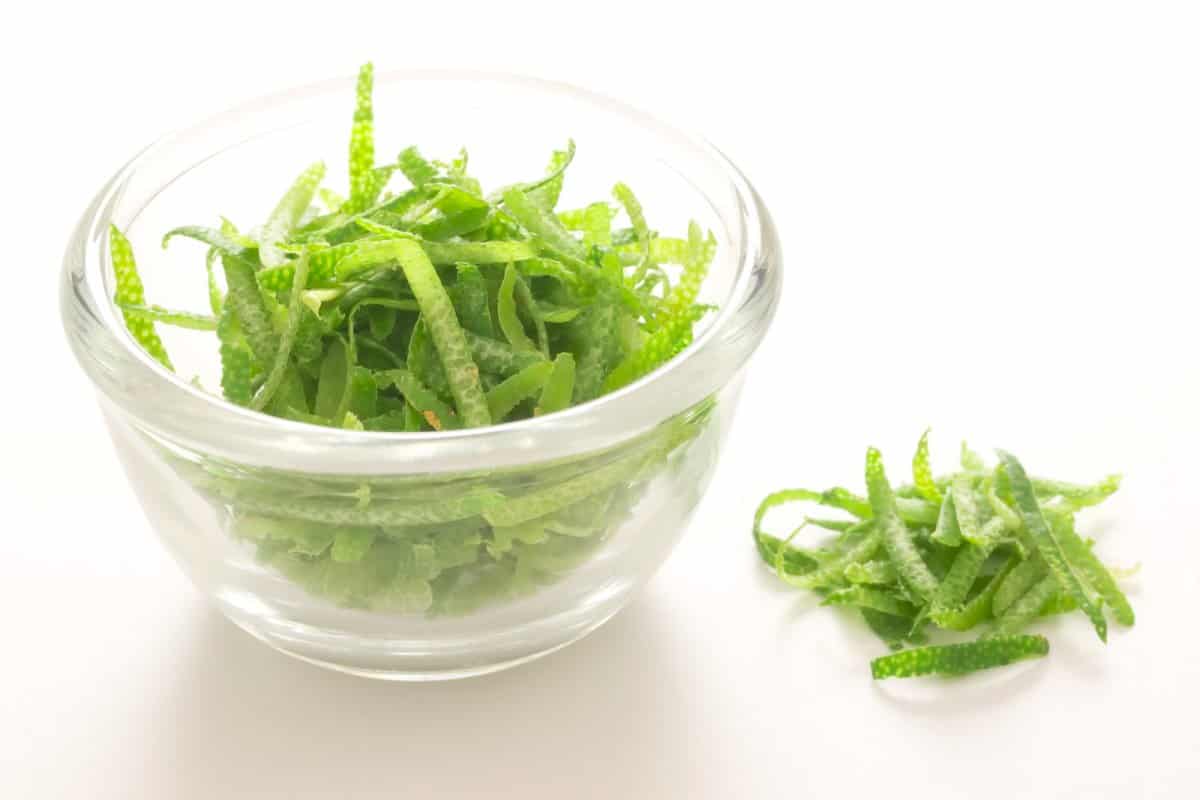
Another fruit belonging to the citrus family is lime, making lime zest one of the best substitutes for orange zest. It has the same appetizing, bright citrus flavor and aroma.
However, it has a distinct sour taste. It's why I use a lesser amount of lime zest compared to orange zest. The best ratio is to replace every teaspoon of orange zest with half a teaspoon of lime zest.
If the amount you need to use in your recipe exceeds a teaspoon of lime zest, I recommend adding a tiny amount of honey or any sweetener. Doing so will help balance out the strong sour taste.
Simply divide the amount of lime zest used by two, to come up with the right amount of sweetener to add.
Best for baked goods, fish and meat marinades, and beverages.
5. Pomelo Zest
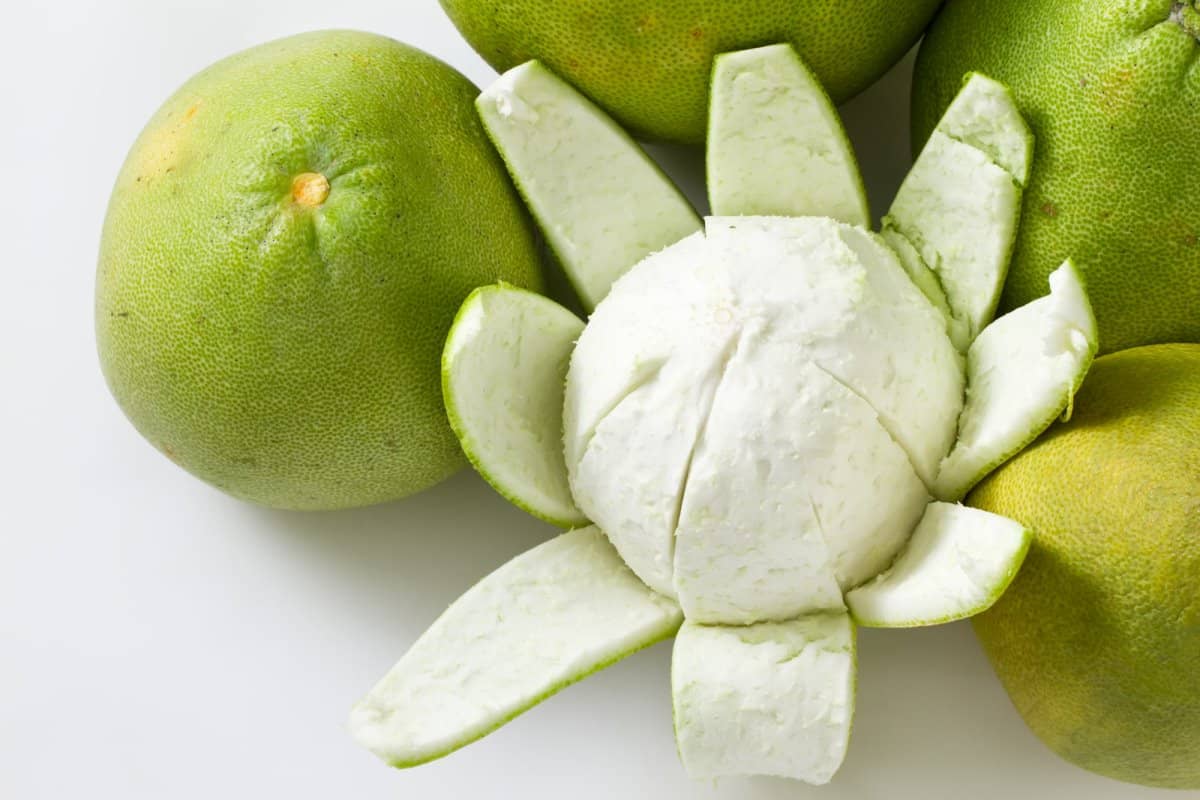
Yes! You can zest the rind of that huge pomelo in your fruit basket or countertop to replace orange zest in your recipe. It has the same orange flavor and aroma, but pomelo zest has a slightly sour taste.
It's why you must use pomelo zest like how you use lime zest. Add half the amount of the orange zest your recipe calls for. Then, add any sweetener when using more than a teaspoon of pomelo zest.
Just bear in mind that it can be a bit daunting to zest the pomelo's rind because of its size.
Best for baked goods, fish and meat marinades, and beverages.
3 Best Orange Zest Substitutes for Flavor and Aroma
If the purpose of the fresh zest of orange in your recipe is only for flavor, aroma, or both and not texture, here are my highly recommended substitutes:
1. Orange Extract

If you're a home baker like me, you surely have fruit extracts in your pantry because they're one of the best flavor enhancers in baking. Since we're substituting orange zest, it's only apparent to use orange extract.
However, make sure that what you have is 100% orange extract, not those with added sugar and other ingredients.
Made from the orange's flesh and rind, the pure orange extract has a concentrated flavor and stronger aroma than orange zest. Hence, you will need to use a lower amount of orange extract than orange zest.
The substitution ratio will depend on the strength of the orange aroma and flavor you're trying to achieve. You can add a quarter or half of the amount of orange zest listed in your recipe when using the pure extracts as a substitute.
Best for baked goodies.
Related: What's the Best Cointreau Substitute? Here Are My Top Recommendations!
2. Candied Orange Peels

The orange peel differs from the zest because it includes the albedo, or the white area between the fruit's outer layer and the flesh. This part of the fruit gives the peel a slightly bitter taste, which is noticeable when used as is.
For this reason, I recommend using candied orange peel because the sugar helps balance the flavor. While it can add more sweetness to the baked desserts you're making, you can always decrease the amount of sugar or any sweetener included in your baking recipe.
To use candied orange peels as a substitute for orange zest, only add a quarter of the amount required. For instance, add ¼ teaspoon of your candied orange peel if your recipe calls for a teaspoon of orange zest.
Best for sweet desserts.
3. Dried Orange Peel

Although it has a citrus aroma and flavor profile, dehydrated or dried orange peel has a distinct sourness and bitterness. It's why I only use half the amount of the required orange zest in the recipe.
Additionally, I only suggest using it in desserts and dishes that are already sweet or have sweet ingredients. This way, there will be a good balance of flavor.
Best for sweet dishes and desserts.
5 Best Orange Zest Substitutes for Acidity
Now, if you're only after the citrus or orange flavor, you can use liquid ingredients as substitutes for orange zest.
However, since they're liquid, they can affect the resulting texture of your baked goodies. What I do is adjust the amount of liquid ingredients in my baking recipes. Sometimes, I completely omit them if it wouldn't affect the goodie's overall flavor and quality.
With that out of the way, here are my top choices for the best substitutes for orange zest:
1. Orange Juice

Orange juice won't disappoint when it comes to acidity and flavor.
But like with the orange extract, you should be mindful of the orange juice product's content. Make sure you opt for pure orange juice. Don't use those with artificial flavoring and colors.
You'll also find orange juice with added sugar or sweetener, which you can use if you have no other options. Just make sure you adjust the amount of sweeteners in your recipes.
Whichever orange juice product you use, remember that it's less concentrated than orange zest. Thus, you will need to increase the amount added to your recipe.
To substitute orange juice for orange zest, use twice the amount of orange zest required in your recipe.
Best for sauces, dressings, marinades, and baked goodies.
2. Lemon Juice
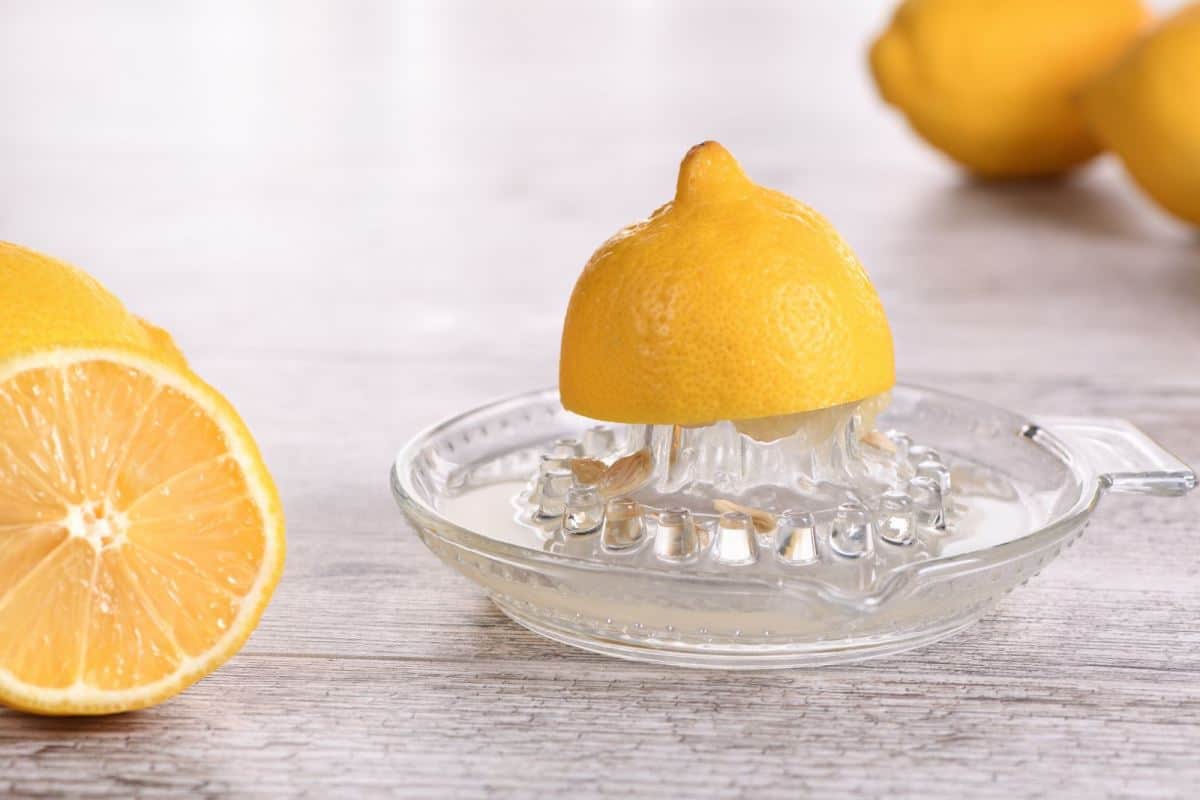
Give your recipe its much-needed zing and citrusy, tangy flavor without the orange zest by using the same amount of lemon juice.
One issue with lemon juice is its sour taste, but like with other ingredient substitutes, I have a solution to this.
Mix your lemon juice with a bit of honey, stevia, sugar, or any sweetener to balance out the sourness and mimic the slight sweetness of the orange. For a well-balanced flavor, combine two parts lemon juice with one part sweetener.
Best for sauces, dressings, marinades, and baked goodies.
3. Grapefruit Juice

If you're like me, who loves to stock up on citrus fruit juices, to ensure you (and your family) get a good dose of vitamins and minerals, you most likely have grapefruit juice. So, go ahead and grab a can or two and use it as an orange zest substitute.
With its sweetness and tanginess, no one would notice you're missing an ingredient. But make sure you add more than what your recipe calls for orange zest.
I usually replace a teaspoon of orange zest with 1.5 teaspoons of grapefruit juice. However, you can always add more if you want or need to.
Best for dressings and desserts.
4. Apple Cider Vinegar

Who would have thought that they'll see apple cider vinegar listed as one of the best substitutes for orange zest? Yes, it has a different flavor profile from orange and other citrus fruit zest, but it has a tangy flavor.
Apple cider vinegar also has a high acidity level, so it's my favorite orange zest substitute when making fluffy muffins, brownies, and bread.
Like canned or fresh lemon juice, apple cider vinegar has a sour taste that you must be mindful of before adding it to your recipe. But yet again, this issue is something that a sweetener can solve. Simply combine two parts of apple cider vinegar with one part of a sweetener of your choice.
In terms of substitution ratio when using apple cider vinegar, add half the amount of the required orange zest in your recipe.
Best for baked goodies, dressings, and marinades.
5. Regular Vinegar
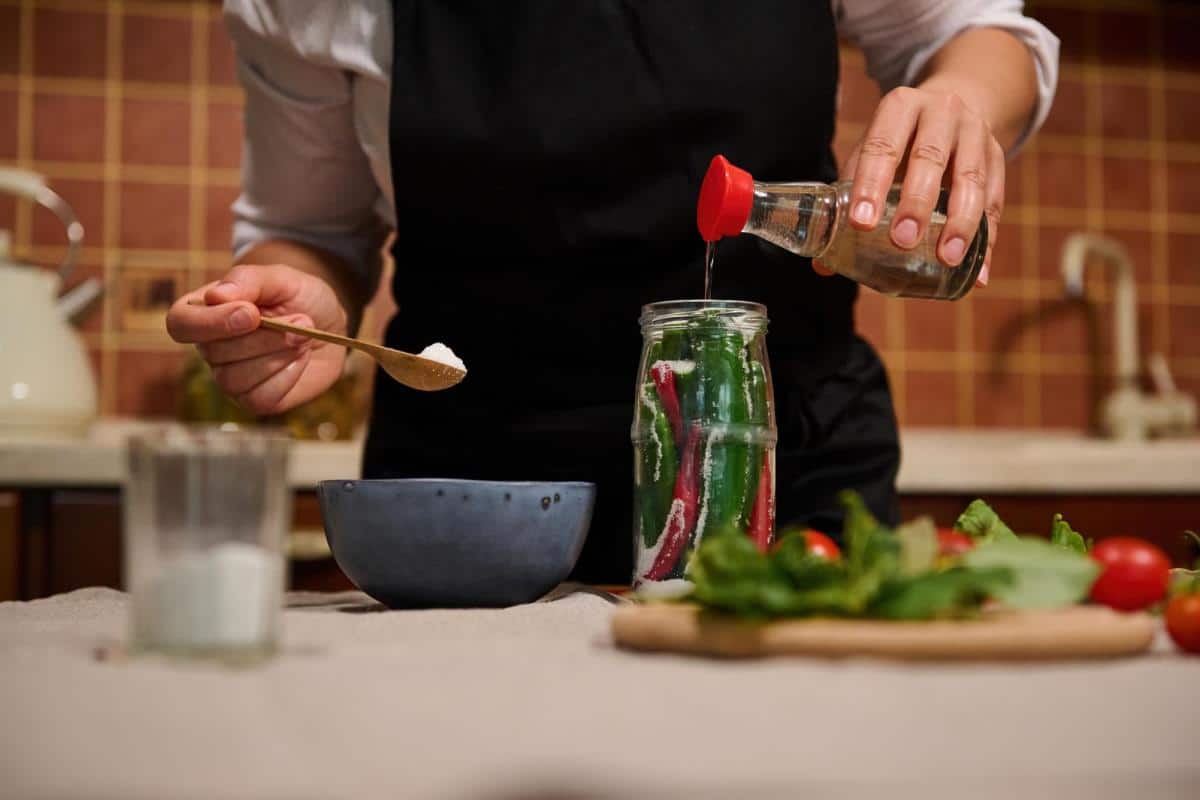
If there are no substitutes for orange zest available and you can't run to the grocery, you can use the vinegar in your kitchen cabinet or shelf.
Compared to apple cider, it has a stronger sour flavor. It's why I make sure I taste the vinegar first before adding it to my recipe.
If the sour taste is subtle, I use a 2:1 (orange zest:vinegar) substitution ratio. On the other hand, I only add a quarter of the amount of the required orange zest. Then, I combine two parts of regular vinegar with one part of honey or any sweetener to ensure a balance of flavor.
Best for baked goodies, dressings, and marinades.
Substituting Orange Zest the Right Way
Add the right amount of citrusy flavor, aroma, acidity, and/or texture to your beverages, baked goodies, and sweet and savory recipes without the orange zest by using the best orange zest substitute. From fruit zests and juices to vinegar, you'll find an option that will work well for your specific recipe.
Make sure you consider the main reason you're replacing the orange zest in your recipe.
Recipe

Best Orange Zest Substitutes
Ingredients
- 1 teaspoon lemon zest
- ¼ teaspoon orange extract
- 2 teaspoon orange juice
Instructions
- Option 1: Lemon ZestAdd one teaspoon of lemon zest for your beverages, sweet dishes, savory dishes, dips, marinades, sauces, salad dressings, and baked goodies requiring a teaspoon of orange zest.
- Option 2: Pure Orange ExtractFor your baked goodie recipes that list a teaspoon of orange zest, add ¼ teaspoon of orange extract.
- Option 3: Orange JuiceWhen preparing sauces, salad dressings, and marinades that call for a teaspoon of orange zest, add two teaspoons of orange juice. Do the same for your baked goodies, but adjust the amount of liquid ingredients to avoid having too watery dough.
Notes
You can find the video in the post above. If you don't see a video, please check your browser settings.


Leave a Reply